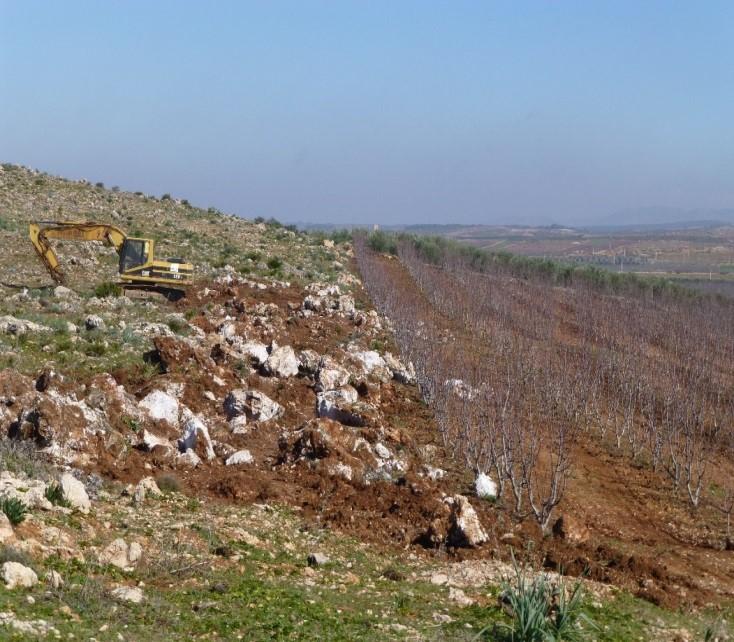- Home
- Worldwide
- CIRAD worldwide
- Projects
- eGroundwater project
Sustainable groundwater management in Mediterranean regions with water deficits - eGroundwater

Stone removal prior to intensive apple tree planting in the Middle Atlas, Morocco © N. Faysse, CIRAD
Issues
The participation of groundwater users – primarily farmers – is now largely promoted as a way of improving management systems. However, poor access to and circulation of information are major constraints that hamper their involvement. There is often a lack of information to describe resources and their use, whether in terms of the areas planted or the amounts of water used.
Description
The aim of the eGROUNDWATER project is to test ways of supporting participatory, sustainable groundwater management by means of innovative information systems. Those ways include both new tools (satellite analysis, drones) and involving users in data gathering and management (which falls within the fast-developing field of "citizen science". In particular, there are plans to develop test a smartphone app by means of which players could both input data (for instance on water levels) and obtain information in return (for example on the hydrological situation or areas planted). Case studies are under way in Morocco (Sefrou province), Algeria (Adrar), Spain (Valencia) and Portugal (Algarve).
Expected impacts
- New methods for acquiring and disseminating knowledge on aquifers will have been implemented, associating stakeholders and operating in areas with limited research capacity and expertise in terms of groundwater.
- Management strategies centring on these new processes will have been drafted.
- Those strategies will serve to identify more sustainable agricultural development pathways, based on intensive use of aquifers, particularly in North Africa.
Contract partners
Ahmed Draia University of Adrar (Algeria); Moulay Ismail University, Meknes (Morocco); Instituto Superior de Economia e Gestão, University of Lisbon (Portugal); University of Algarve (Spain); ICATALIST (Spain); VisualNACert (Spain); Polytechnic University of Valencia (Spain)
























